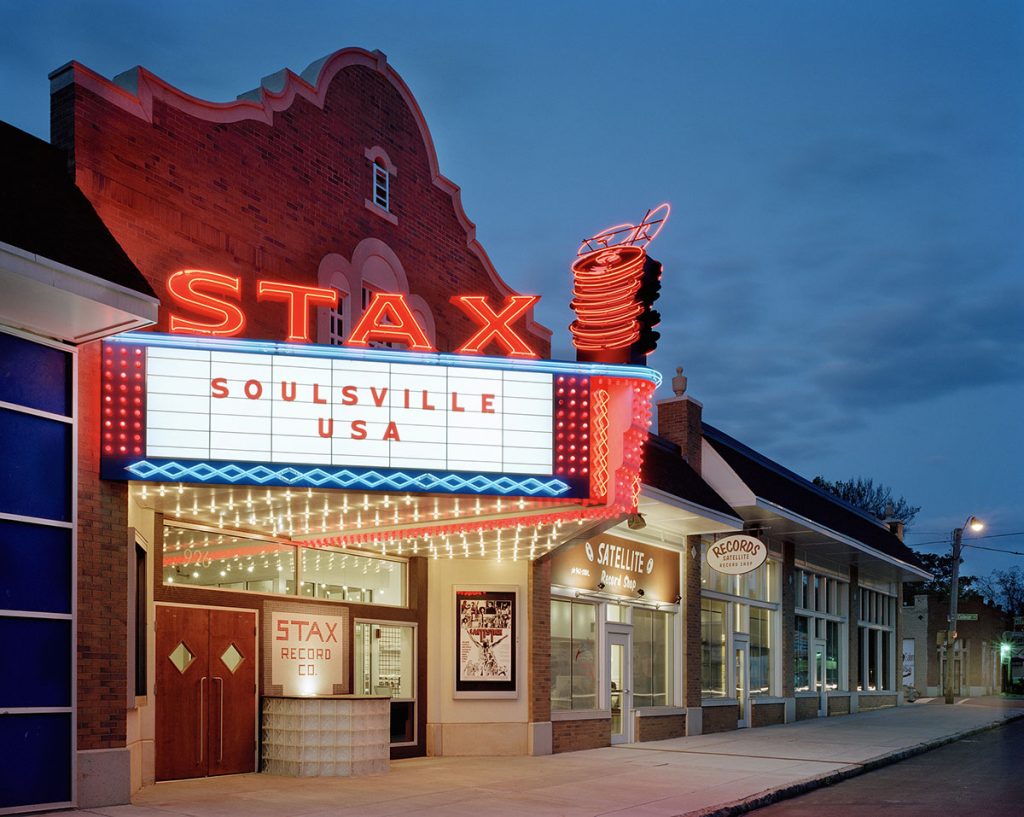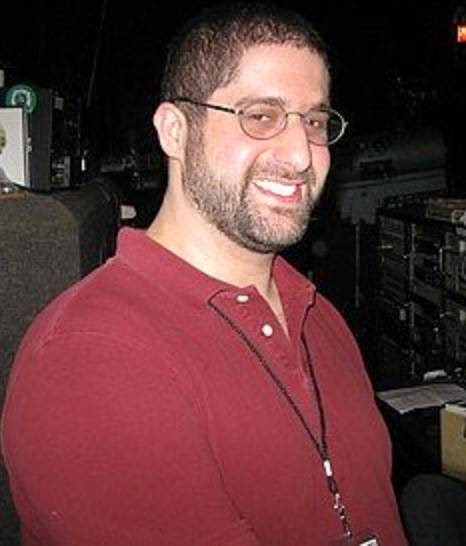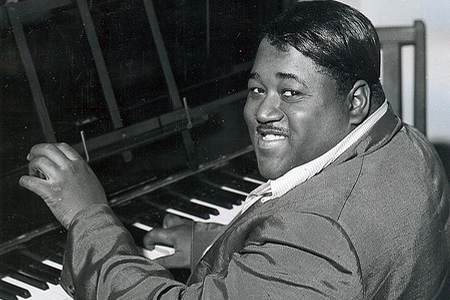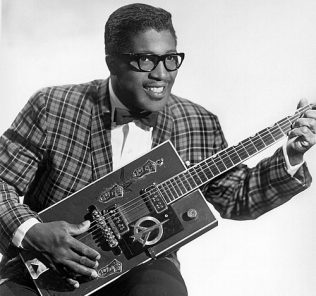Bob Abrahamian’s massive Chicago soul music collection heads to Memphis
The Stax Museum of American Soul Music in Memphis, Tn. is one of my favorite music museums in the country. I’ve been chronicling the museum since 2003 when it opened on the site of the original Stax studio, which was razed in 1989.
I’ve leaned into the way the museum connects with local students through their Stax Music Academy. I had some of the inspired students on my WGN radio show in 2017 as they prepared to go to France, England, and Ireland to celebrate the 50th anniversary of the historic Stax/Volt European Tour.
I’ve also made a minor nuisance of myself wondering aloud for 25 years why Chicago hasn’t been able to develop a cultural gem similar to Stax. Especially when Chicago is the home of the historic and often dormant Chess Records building.
So, this is what happens when Chicago does not share the vision of places like Memphis:
Stax announced on Wednesday that it has acquired the majestic sweet soul music collection from the late Chicago oral historian, record collector, and disc jockey Bob Abrahamian. The University of Chicago graduate committed suicide in 2014 at age 35 after a battle with depression.
Abrahamian’s collection of more than 35,000 45 RPM soul and R&B singles and LPs, along with related high school yearbooks of artists, photographs and scrapbooks will become part of the Stax archives. It is regarded as one of the largest collections of soul music in the world. The majority of the collection is sourced from Chicago and many obscure Chicago record labels. Abrahamian’s family donated the collection to Stax after years of discussion. The collection had been on loan temporarily to the Center for Black Music Research at Chicago’s Columbia College until it closed in 2019.
In a press release, Stax Museum Executive Director Jeff Kollath said, “We had every intention of trying to help them (the Abrahamian family) find an institution to permanently house the collection, preferably in Chicago. After several years of discussions we decided the Stax Museum would be an appropriate custodian of this important collection because of our ability to house, properly care for, curate, and share historic artifacts with the public, and because of our distinction of being the world’s only bona fide soul music museum.” Kollath is from the Chicago neighborhood. He is a native of Waunakee, Wis. who got his master’s degree in Public History at Indiana University-Purdue University in Indianapolis.
In a statement, Abrahamian’s sister Jenny Abrahamian said, “My parents and I decided to donate Bob’s collection to the Stax Museum, where his collection will be highlighted to the public and made available to researchers. We believe Stax will continue his life’s work of recognizing, sharing, and preserving Chicago’s music history and soul music history.”
Yep, because we in Chicago can’t do that ourselves.
Abrahamian titled his WHPK radio show “Sitting in the Park” as a homage to the tender 1965 ballad that the late Billy Stewart recorded for—wait—Chess Records.
Long-time Chicago writer Jake Austen was a close friend of Abrahamian’s. He also is talent buyer at The Promontory music room in Hyde Park. The Promontory is at 5310 S. Lake Park Ave, just ten city blocks south of the historic Muddy Waters house on Lake Park.
Austen isn’t as bummed out as I am about the third-largest city in America not having a meaningful destination for blues and soul music history. “It’s just not viable,” Austen said on Tuesday. “It’s important. It’s great music, great culture, and great art. It’s just hard. The Black Music Research Center couldn’t maintain itself and that’s with university support. It’s sad that Chicago doesn’t have a museum like that but I’m proud of Chicago for not having that big George Lucas museum. It’s very hard. I didn’t sell out (Grammy-winning soul singer) Bobby Rush when I had him. We sold like 150 tickets to Bobby Rush, you know?
Austen sighed and continued, “The only way something here would exist is like the Jimi Hendrix thing (MoPop, Museum of Pop Culture, formerly EMP) in Seattle with the Microsoft money. If something was underwritten. I’ve seen very good music exhibits at the Chicago History Museum. Stax exists because schools go there. They get ‘X’ amount of dollars. It’s a good museum.” Stax also has received money through the African-American Civil Rights Program from the National Park Service and the Grammy Museum Foundation.
The National Museum of African-American Music recently opened in Nashville, in the middle of a pandemic. The highly acclaimed $60 million museum was financed in part by the city of Nashville, the state of Tennessee, and private donors that included Amazon and Vanderbilt University in Nashville.
Abrahamian was generous and meticulous in his research which will become lovingly transparent to any participant. “It is an incredibly curated collection of records,” Austen said. “It’s an important collection because of how it is curated and how he developed a taste for this sweet soul music as opposed to funk or other music forms. The interviews he did on his radio show are more important than the collection. It was nice to not break it up. Someone definitely could have made hundreds of thousands of dollars selling those records. People can look at what the collection was and think about it. It’s going to be about the music but there might be something about collecting the music that will be revealed.”
You can listen to archived shows from Abrahamian’s “Sitting in the Park” radio show here.
And in 2016 the Numero Group in Chicago curated a loving 16-track “Sitting in the Park” tribute to Abrahamian. That can be ordered here.
Numero Group co-founder Rob Sevier curated “Sitting in the Park” and wrote passionate liner notes. Earlier this week Sevier said, “It’s really sad to see Bob’s life work leave town as he was so inextricably linked to this town. Secondly, it’s a shame to realize how little infrastructure there is here in Chicago to take in such a significant archive.”
Plans for the Abrahamian collection at the Stax Museum include exhibits, listening stations and making the music and artifacts available to students, researchers, and others with an interest in soul music. Between 1961 and 1975 more than 800 singles and 300 LPs were cut by artists like Otis Redding, Isaac Hayes, Sam & Dave, and the Staple Singers at the original Stax location.
(Sidebar on another Stax-Chicago connection:. During a 2004 tour of the Stax museum, Stax songwriter David Porter and I began talking about Booker T & the MGs drummer Al Jackson, Jr. who provided the beat for 95 percent of the material recorded at Stax in the 1960s. On Oct. 1, 1975, Jackson had planned to go to Detroit to produce a session with Chicago soul singer Major Lance but changed his mind when he heard about the Joe Frazier-Muhammad Ali fight that was shown closed-circuit at the Mid-South Coliseum in Memphis. Porter and Jackson went to watch the fight at the coliseum. “He came home, somebody tied up his wife and killed him,” Porter said. “She was left alive. It’s still hard to talk about.”)
I considered the important work of artist-urbanist Theaster Gates who acquired nearly 5,000 records from the late House Music maestro Frankie Knuckles that are on display at the Stony Island Arts Bank on the south side of Chicago. “That’s more of an art project,” Austen said. “All the records are in a space to look at now and then something pops out. The idea that Theaster has been able to raise money is very cool and he’s done some very great things.
“Museums are expensive and they require constant fundraising. They don’t make money and they cost a ton of money. I’m not trying to be super critical but I don’t believe it will ever happen.” I agree. I doubt that I will see a world class blues-soul-jazz museum in Chicago in my lifetime.
But the sweet dreams of Bob Abrahamian will play on forever.







Leave a Response